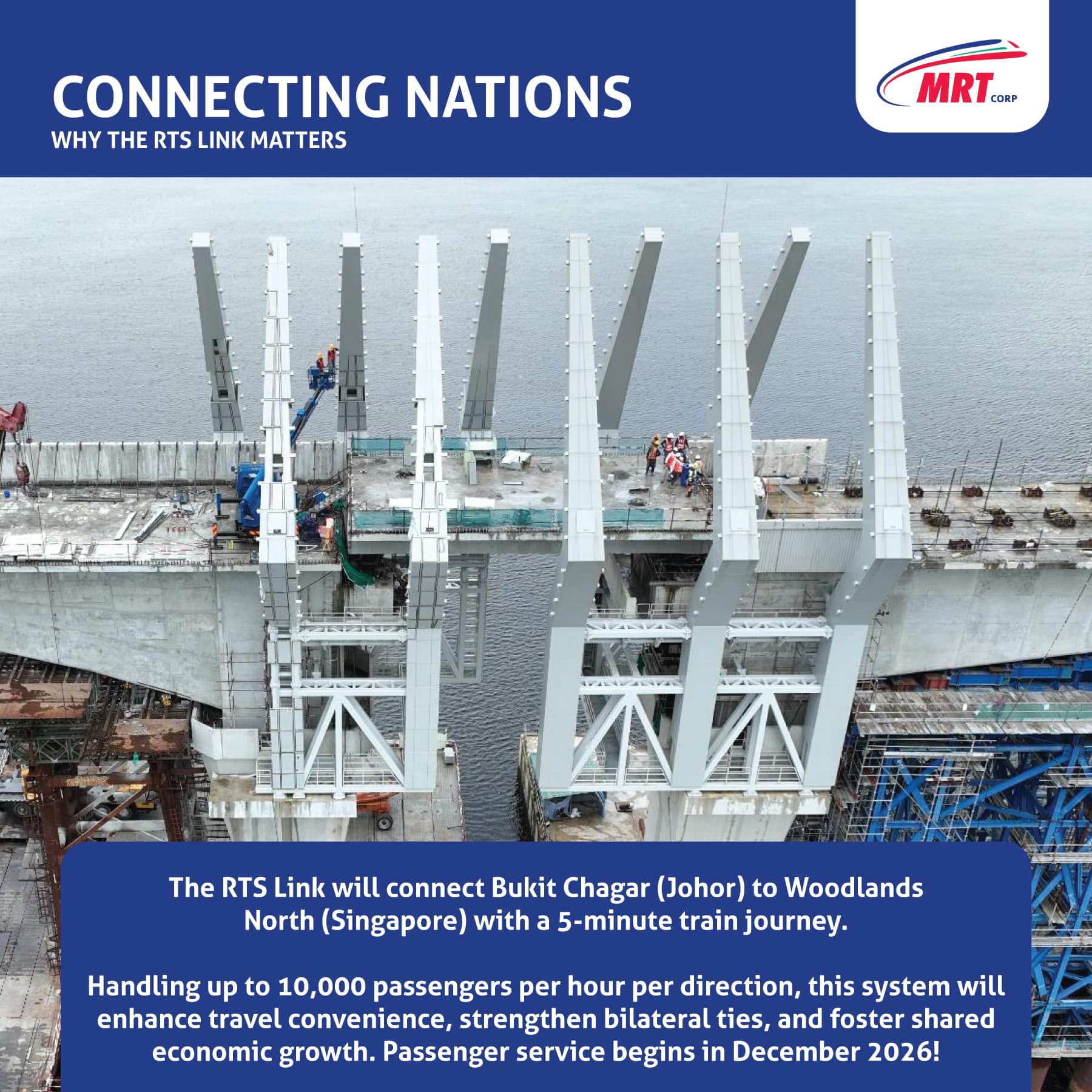SINGAPORE: The high volume of vehicles and people going to and from Singapore and Johor Bahru has meant long travelling times between the two cities, and traffic advisories have often told people to factor in as many as three hours of waiting time.
In two years, however, this will become history for many who traverse the route.
By December 2026, the Johor Bahru–Singapore Rapid Transit System (RTS) Link is set to be completed, shortening a cross-border trip to a mere five minutes.
Additionally, since as many as 10,000 passengers per hour can be accommodated in both directions, traffic congestion is expected to plummet.
There has been substantial progress on the project, which is expected to transform connectivity between Singapore and Malaysia on both sides.
The MRT Corporation said on Nov 29 that in Malaysia, 93 per cent of the infrastructure is already done. This includes the Bukit Chagar Station and Wadi Hana Depot.
Moreover, construction crews are currently making progress on track installation.
Over in Singapore, 80 per cent of the viaducts and other infrastructures have already been completed. The city-state has been hard at work preparing the Woodlands North Station, which should be ready by next year.
It will be integrated into Singapore’s MRT system.
Much has been made of a design feature on the RTS Link known as the “clasping hands” viaduct. It symbolizes the close connections between Singapore and Malaysia.

The RTS has been a long time coming and had it not been for delays, the rail system would have been completed and become operational this year. A solution to heavy traffic on the Causeway, which is crossed by as many as 300,000 people daily, has been needed for years now.
The project was suspended in 2019 after the Malaysian government, then led by Dr Mahathir Mohamad, announced plans to review existing deals and keep a tighter rein on its national finances.
Construction on the railway suffered further delays the year after that due to the Covid-19 pandemic.
Fortunately, building the RTS link resumed in November 2020 and by October last year, had passed the 50 per cent completion mark.
The project is budgeted to cost RM10 billion (over S$3 billion). Malaysia is providing RM3.716 billion for the rail link, while Singapore is shouldering the remaining 61 per cent of the costs. /TISG
Read also: Rail installation for Johor Bahru-Singapore rapid transit system to begin by year-end

